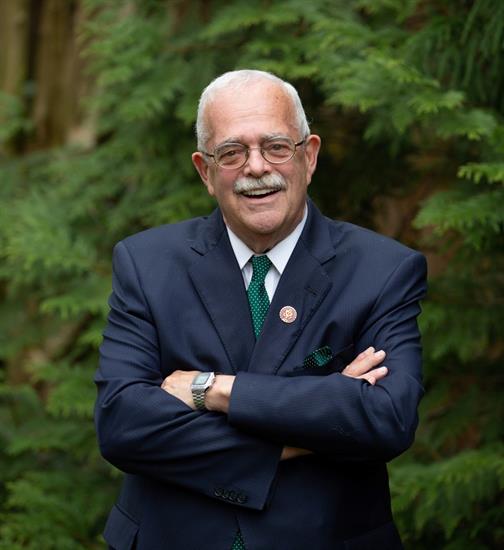Confession of a “Woke” Sports Fan
I’m going to admit that even as I write this, it’s with a bit of hypocrisy.
See, I grew up in Georgia as an Atlanta Braves fan doing the tomahawk chop in 1991 as they ascended to success, and upon moving to Virginia area I sported a Chicago Blackhawks jersey because I thought it looked cool. I rooted for the Florida State Seminoles football team and thought nothing of the St. John’s Redmen basketball program when they took on my beloved Duke Blue Devils at Madison Square Garden.
I scoffed at those who would come out during the Fall Classic and write scathing articles asking the teams to consider changing their name. The sight of watching Chief Noc-a-homa coming out of his teepee and doing dance after every home run entertained me, while they blasted “Apache” by the Sugar Hill Gang on the loudspeakers at Atlanta Fulton County Stadium. My thinking was who cared about whether some indigenous peoples were bothered at the sight of the insidious Chief Wahoo big-toothed logo that Cleveland sported on their caps? Albert Belle just went yard!
And I was part of the problem.
For decades sports have always been more than a playing field for the world’s greatest athletes, it is also a platform where the issues of society are expressed. Ever since Tommie Smith and John Carlos raised their black gloved fists (with Peter Norman standing in solidarity) at the 1968 Mexico City Olympics, the intersection of injustice and institution would collide on the gridiron, diamond, and hardwood floors. The vitriol aimed at players such as Mahmoud Abdul-Rauf when we turned his back during the playing of the national anthem to the recent kneeling of Colin Kaepernick let it be known that there is no “safe place” for racism to be tolerated.
However, we have, as we often do in this country, ignored the plight of Native Americans, who are continued to be displayed as mascots for professional sports franchises. We dismiss their claims as, “Why are you trying to ruin our fun? It’s just sports.” No, it’s not just that, and in an ever-changing society, we need to finally realize that racism disguised as entertainment is as bad as policies which openly oppress those of Hispanic and Black communities.
Statues in Virginia are finally being removed, and schools named after Confederate leaders are being changed, yet there are still institutions that have not taken that step to recognize how they’ve profited off such an offense. There are reports that the Washington Redskins, after decades of being adamant about keeping the name, are considering a review of changing the name. Not long after team owner Daniel Snyder made the announcement, the Cleveland Indians released a statement stating they are conducing a review as well.
Back in 2016 there was a poll conducted in the Washington Post that stated 9 out of 10 people approved of the name. Also, there are those who may not know the history of how the name came to be, as the term “Redskin” was to honor the native tribes in the area who wore red bloodroot on their face to identify their stature as warriors. The logo was designed by Walter “Blackie” Witzel of the Blackfoot tribe. For them, it was a symbol of pride.
For others, however, it is a symbol of shame.
Crystal Echo Hawk, Founder and CEO of IllumiNative, a non-profit initiative designed to increase the visibility of Native Nations in American society, spoke about the motivation of Snyder on CBS Sports’ Tiki & Tierney show this past Friday to change the name. “I think Daniel Snyder has made his character perfectly clear over the years in his tactics he’s used to silence Native American voices,” said Hawk. FedEx, which sponsors the stadium in Maryland, announced that they would like for the franchise to change their name. Nike has removed all likenesses of the Redskins from its retail site as well.
Hawk went on to talk about the perception of Snyder even if there is a name change. “He’s not motivated by doing what’s right, and that is a statement in itself. Everyone’s making grand pronouncements about fighting racism, but we can’t as a society pick and choose the types of racism we want to fight and ignore then turn a blind eye to others. In this moment it is about fighting racism against Native Americans but also fighting racism against black people and Asians and down the line Latinx.”
Whether or not they make these changes on a purely financial level, it’s a change that is long overdue. America needs to not only admit its racist past, but to take steps to deal with it. The St. John’s Redmen changed their name to the Red Storm, and on a local level the late Abe Pollin changed the name of the Washington Bullets to the Wizards. I give credit to these institutions realizing that their programs carried offensive names and changed course. We are seeing a new day in America, a sensitivity that results in symbolic change that will hopefully give way to more legislative ones. Will removing the names of the Redskins, Indians (and hopefully one day the Braves, Blackhawks and Kansas City Chiefs) change the horrific conditions in which many Native Americans live under? No, but it will show that for the first time in centuries, that racist monikers cannot be tolerated under the guise of show.
Oh, one more thing: to all of those who might be bothered at the name change, I ask you this. As long as Washington sweeps Dallas next season and Cleveland wins its first World Series since 1948, will you really care what their names are?



